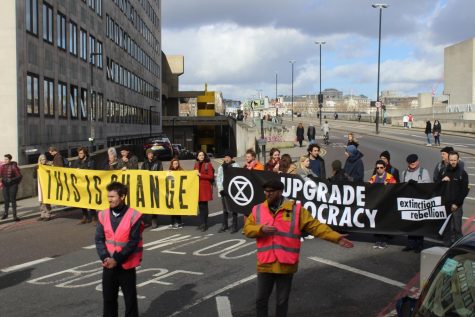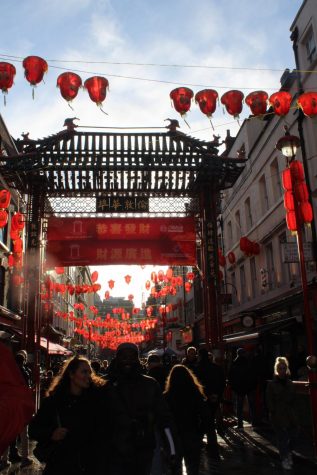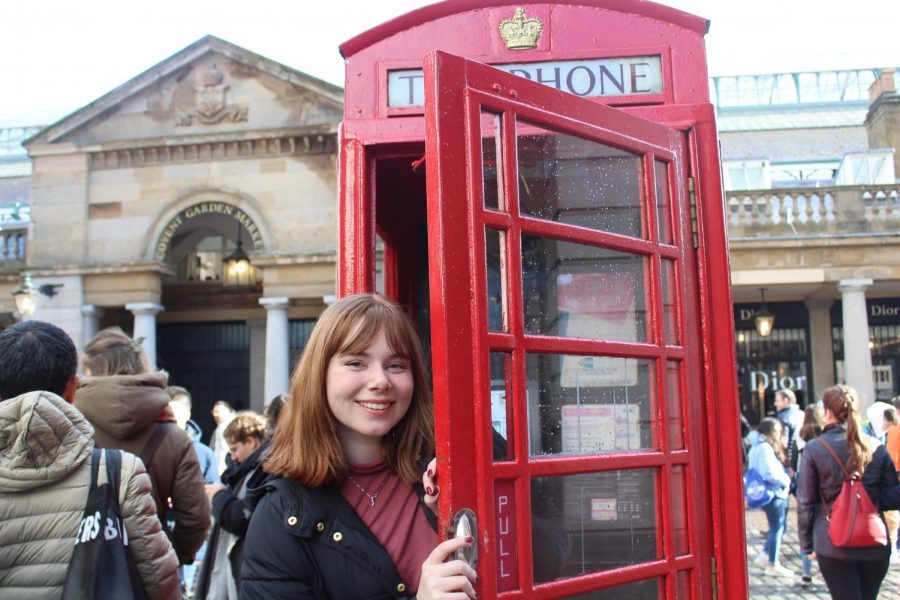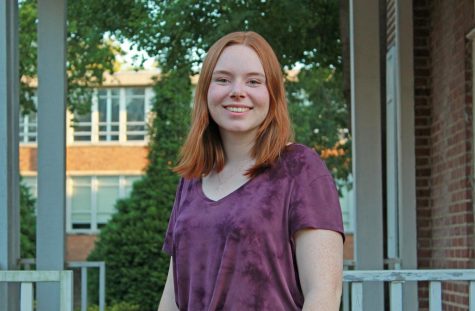Almost stranded in Europe: a student’s perspective
Alden Wiygul on the first day in London when the group visited a popular market square that was busy with people shopping.
March 26, 2020
One month ago, the world looked completely different. In this different world, I decided to take a trip to England and France for spring break. I never anticipated almost being stuck in a foreign country for 30 days as the world shifted into a pandemic-driven lockdown.
Our history teacher, Ms. Julie Heintz, and EF Educational Tours planned a trip to England and France this year. It was supposed to be WWII-based, and we were going to visit London, Normandy and Paris. I signed up about a year ago hoping to finally see Europe for my senior year trip
Our trip hit its first major problem in dealing with the outbreak of the Coronavirus a week before we flew to London. Even though no one foresaw everything that would happen in the coming weeks, EF felt the need to offer options to those worried about the virus. We could either still go on the trip, move our trip to June or get a voucher for another trip later on.
I felt my dreams begin to fracture; I had fantasized about going to London and France for years. Realistically, I also knew there was a low chance of this passing over completely by this summer. After a lot of convincing my parents, they allowed me to still go on the trip. That decision came the Thursday before our Saturday flight.
Saturday morning, with a backpack full of wet wipes, hand sanitizer and masks that don’t help, I flew with our tour group out of the Memphis airport into Dallas and then to London. There was a decent number of people wearing face masks at the airports, but not enough that anybody would notice if they did not know about the breakout. When our tour guide arrived, he told us that the airport was the first time he had seen anyone wearing a mask.
Once we finally got out into London (three hours late because we did not realize a member of our group had canceled the trip), I realized he did not exaggerate. Going into a foreign country so close to one of the epicenters of the disease, I expected there to at least be as much panic as there was in the United States. The opposite was true, however; everyone I talked to in London and France thought we were overreacting.
Even on the news where in the United States they spent over 30 minutes talking about the Coronavirus, in London they spent two. They seemed most worried about the blow their tourism has taken. Our guide told me that tourism from China was down 90 percent even before all the countries started shutting down.

One of the protests happening in London, this group was protesting climate change and blocking off an entire bridge.
For a while, the virus actually made our trip more enjoyable. With the streets less crowded and our bus empty, we got to do things we would not have been able to do since so many people canceled their bookings. There were no extra precautions in buildings we went into, and there were no people with masks. We even saw several protests for smaller issues like the money wasted on the Commonwealth celebration. The people in England had different things on their minds.
On Wednesday, March 11, we took a 6-hour ferry ride across the English Channel to Normandy, France. That night President Trump announced that after midnight on Friday the U.S. would be closed to all European countries, except the UK, for 30 days. I woke up at 8:00 a.m. on Thursday, March 12, with three missed calls and over 10 texts from different people informing me that I was never coming back to America.
When the news broke in the U.S., it was 2:00 a.m. in France. As I woke up that morning, I reasoned with myself that I could not do anything and that both our tour guide and Ms. Heintz had probably been working on the issue for hours. So, I went downstairs and tried to concentrate on eating the best croissant I have ever had.
We were informed over breakfast that we had to be packed and ready to leave, but until they had more information on our new plans, we were to continue with our scheduled tours. Normandy actually ended up being my favorite place we went. Despite the looming threat of being stuck in a foreign country, I fell in love with the French countryside and beaches.

Despite the threat of the virus, the streets of Chinatown in London were full of people walking around.
Our tour across the Normandy beaches cut short, however, as we had to make a 3-hour bus ride to Paris to spend the night in a hotel next to the airport we flew out of the next morning. The entire way, I tracked on my phone what was happening in Mississippi as the schools shut down one by one. I forced myself to think only on the bright side, and as we came near Paris, I fell asleep to avoid the harsh fact that we would not get to see a city I had been dreaming of. We felt so close, yet so far away.
As we left the country on Friday, the most eerie thing is that the airport seemed normal. Customs lasted not even 10 minutes, and the only extra precaution they took was asking if I had been feeling sick. It was not until we hit the ground back in the U.S. that we started to see an abundance of people wearing masks. We flew from Paris to Philadelphia to Charlotte to Memphis, where we had started our journey just five days earlier.
The world changed forever, and as my parents drove me home, I felt lost. I had spent around 20 hours that day on planes and airports in different time zones, and nothing registered to me as real.
A week before, I expected to come home exhausted and return to school with stories to share and remember until my next trip overseas. What I got instead was a look into the epicenter of an event that will shape generations to come.









